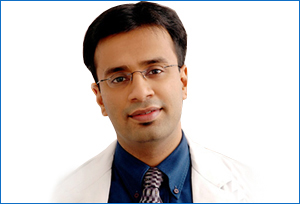The Process Involved In Surgery For International Patients
Any medical ailment, no matter how big or small, requires prompt treatment to alleviate pain and stop it from developing further. But often, the patients are put off by the costs and the long procedures involved in actually getting a surgery done. Sometimes, maybe due to excessive costs or other hurdles, international patients prefer not to get operated in their own country and choose India as their medical destination.
The moment this decision is made, certain doubts come to the surface about the feasibility and process involved in the same. Most of these doubts arise either due to misinformation (lack of information) or improper guidance. Handling the whole process becomes easier with a bit more information.
Step 1: Getting the groundwork done
The first step is to properly diagnose the exact nature of the problem and gather the reports about the ailment and get preliminary basic treatment done to ensure it does not worsen. Once it has been confirmed that further treatment is either not feasible or not possible or too expensive in your country, you could prepare to get treatment done in India
Step 2: Choosing the right hospital
Knowing the ailment is followed by choosing the right hospital that would treat the same. India has many options with trained professionals in a variety of hospitals. You can choose the hospital after some research and direct communication to clear any doubts that might arise. Choosing the right specialist is the most important part of getting treatment done.
Step 3: Getting the official documents processed
Since Medical tourism is a developing field in India, the visa regulations have been simplified and sped up. Government of India has introduced medical visas for foreign nationals seeking an extended stay in India for medical treatments
The highlights are as follows
- The visa period is 30 days for medical procedures
- The total validity for a preliminary medical visa is one year (or duration of the treatment, whichever is lesser) and allows 3 entries during a 1 year period.
- A maximum of two attendants, who are blood relatives are permissible to accompany the patients under separate medical visas
- The duration of the medical attendant visa is the same as the patient visa. Both can be extended with the help of proper documentation (certificate / advice from recognised and specialised hospitals in the country).
- One additional entry in any emergency situation can be allowed with the approval of the state government
Conditions for obtaining visa
- The Indian Missions / Posts abroad will scrutinize the documents and verify that the claim is bonafide and medical treatment is required
- The Mission might also confirm that preliminary medical advice has been taken from a local speciality hospital and has been advised specialised treatment of a nature available in India. This will consult a long list of ailments and validate if the treatment is required and proper confirmation has been obtained from the destination hospital in India.
- The visa would be granted only if reputed or recognised speciality hospitals have agreed for treatment, or if the patient requires treatment in Indian system of medicines
Registration for Visa
- Foreigners who require medical visa can get a visa on arrival to ease their medical process but must register within 14 days of arrival with the concerned FRROs.
- The attendant visa for not more than two blood relatives also for the same duration as the medical visa will be given and they need to register within 14 days on arrival
Eligibility
The eligibility criteria of medical visas are as follows
- Any reputed / recognised specialised hospital in India should be prepared for the treatment and give an acceptance
- The medical attendants would be two in number, and must be blood relatives, with the same visa validity
- Detailed letters explaining course of treatment from the hospital/treatment facility/medical centre that will be treating the patient duly stamped and signed by the doctor who will be treating him/her.
- A preliminary medical advice certificate from the patient’s home country showing that the applicant has been advised to go for treatment, medical reports must be submitted.
Step 4: Fixing the accommodation
Once the visa has been properly arranged for, it is essential to find accommodation in India. Some treatments (including the tests) might continue for an extended duration and it might be more economical or wiser to stay nearby the hospital premises so it is easy to travel to and fro for tests and other treatment procedures
Most hospitals themselves arrange accommodation for international patients or guide them to where they can find the same. This makes the process infinitely easier. So it is best to confirm with the hospital first before making any decision regarding accommodation for the patient and the two attendants
Step 5: Arriving
Proper planning is required for all medical treatments in a very short time because time is critical and delays can affect the efficiency of treatments. Visa regulations have been simplified and processed at a rapid speed to allow for quick treatments and arrival. Booking tickets could be simplified with travel agencies or other helpful options.
The Esthetic Clinics are a chain of top class plastic surgery, cosmetic surgery and aesthetic surgery centers in Mumbai, India, founded by top and renowned facial plastic surgeon, Dr. Debraj Shome.


